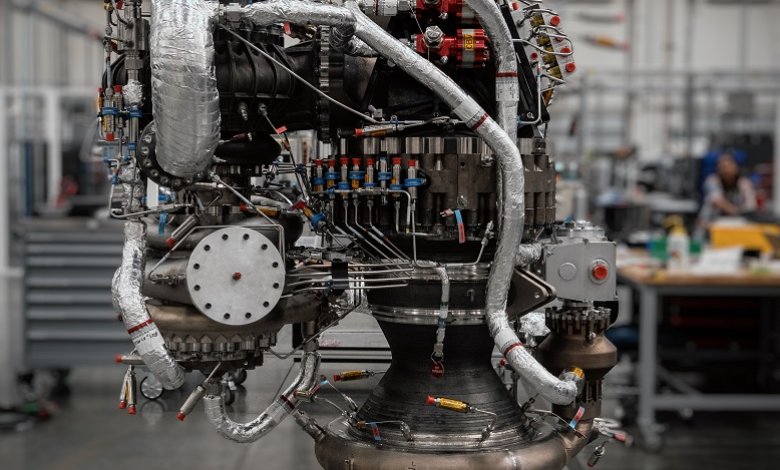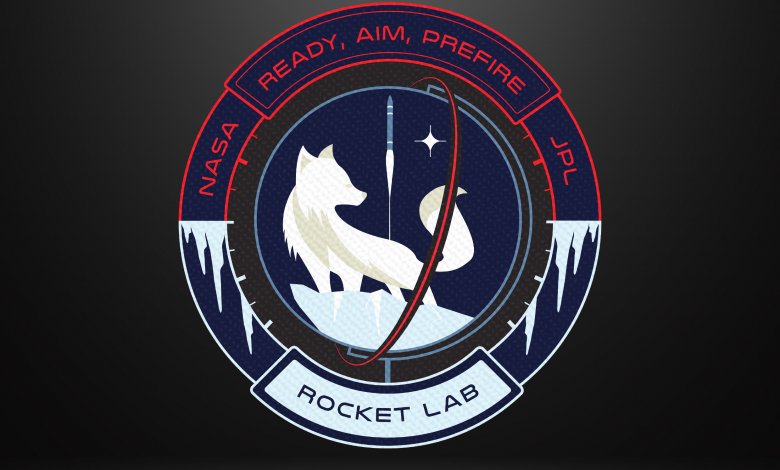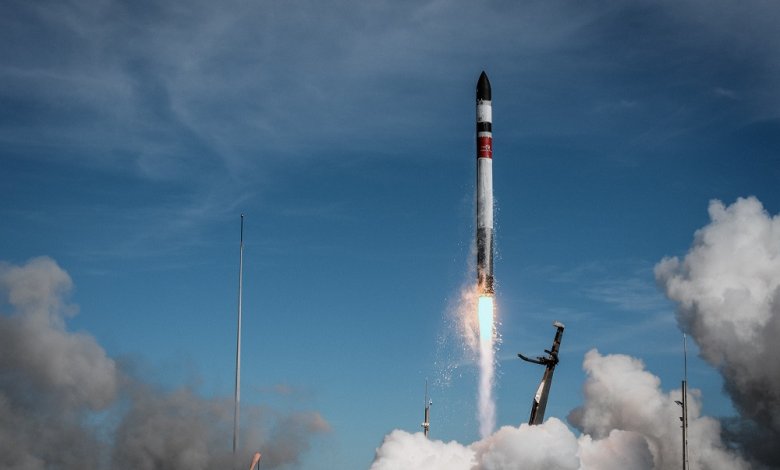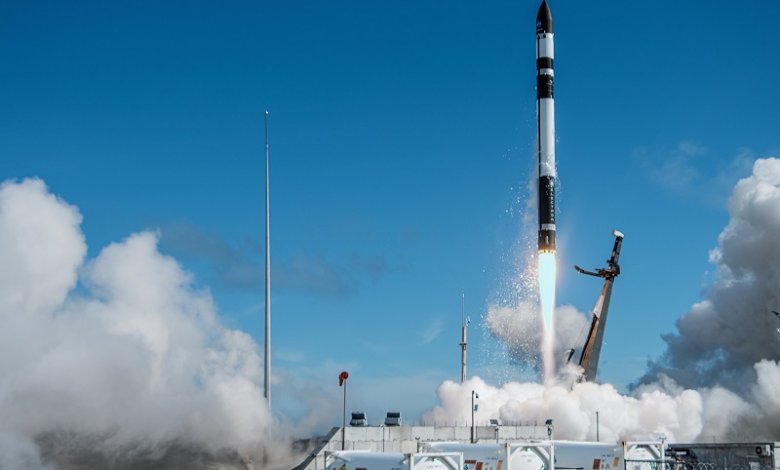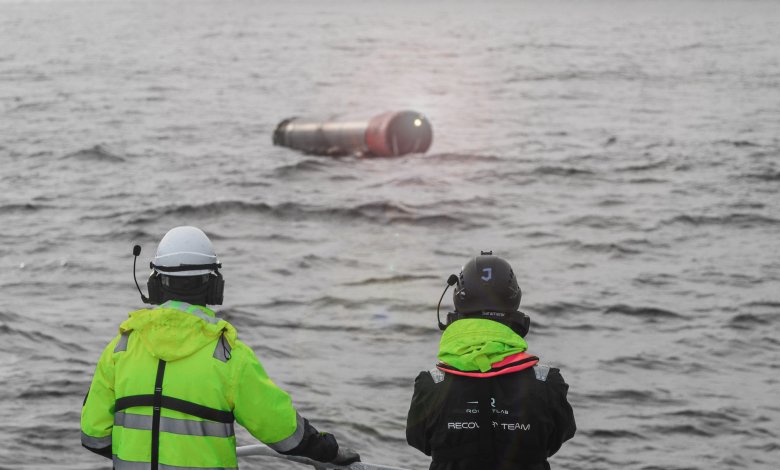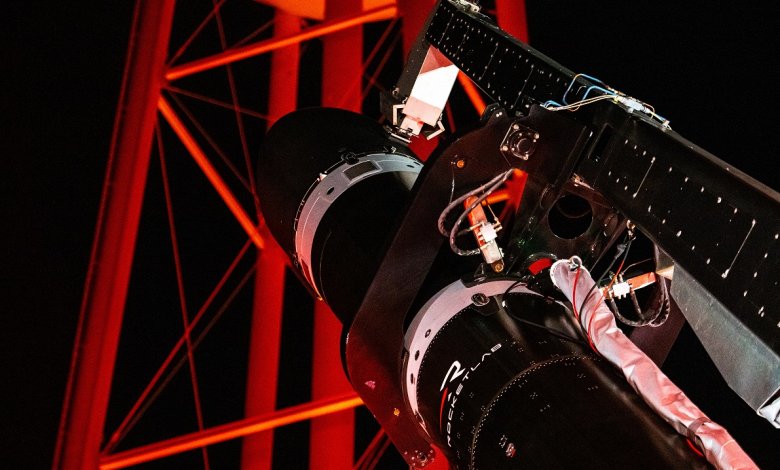Rocket Lab launches milestone tenth mission, completes major success for reusable rocket program
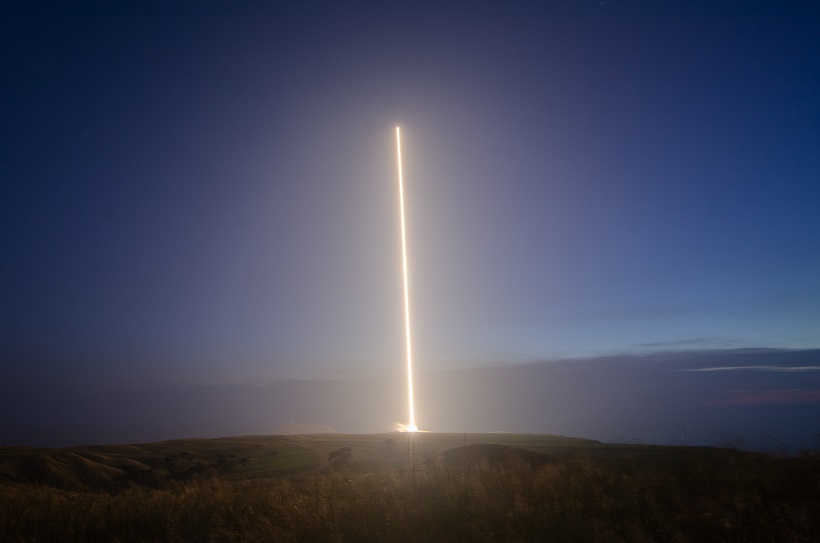
Rocket Lab successfully completes a guided re-entry of the Electron launch vehicle first stage all the way to splashdown and continues track record of 100% mission success for customers with 47 satellites delivered to orbit to date.
Huntington Beach, California. 6 December 2019 – Rocket Lab, the global leader in dedicated small satellite launch, has successfully launched its tenth Electron mission and deployed seven spacecraft to orbit during a launch that marks a major step towards reusable Electron rockets.
The mission, named ‘Running Out Of Fingers’ in recognition of Rocket Lab’s tenth launch, lifted off from Rocket Lab Launch Complex on New Zealand’s Māhia Peninsula at 08:18 UTC, 6 December 2019.
The seven satellites on board were for commercial rideshare customers Alba Orbital and ALE (the latter of which was procured by Spaceflight) bringing the total number of small satellites deployed by Rocket Lab to 47, continuing the company’s record of 100% mission success for customers. ALE’s payload was deployed to a 400km circular orbit, before the Kick Stage’s Curie engine reignited and dropped the stage to a circular 385km orbit for deployment of Alba Orbital’s payloads.
Rocket Lab also successfully completed a guided re-entry of the Electron vehicle’s first stage as part of the company’s plans to make Electron a reusable rocket. The stage made it back to sea-level intact following a guided descent. As part of a block upgrade, Electron’s first stage for this mission included guidance and navigation hardware, including S-band telemetry and onboard flight computer systems, to gather data during the first stage’s atmospheric re-entry. The stage was also equipped with a reaction control system to orient the booster during its re-entry descent.
The RCS system successfully oriented the first stage 180-degrees for its descent, and it remained dynamically stable for the re-entry, keeping the correct angle of attack. The stage was successfully slowed to less than 900 km per hour by the time it reached sea-level and disintegrated as planned on impact.
Rocket Lab will continue to work through the recovery data ahead of a full recovery attempt next year that will see parachutes deployed from Electron’s first stage to enable a soft water landing.
"Not only is this tenth mission a significant milestone launch for us, but our first guided stage re-entry was a complete success. The stage made it through the harsh re-entry environment intact, which is an outstanding result for a first test of our recovery systems. It’s a huge testament to the relentless drive and commitment of our team that we’ve reached ten flights in just our second year of commercial launches,” says Rocket Lab CEO and founder, Peter Beck.
“As we close out another year of launches, we set our sights on a busy 2020 that will see us launch Electron from U.S. soil out of Launch Complex 2 for the first time, while continuing to grow the launch cadence out of Launch Complex 1”
Rocket Lab’s next mission will take place within the first weeks of 2020 from Launch Complex 1.



